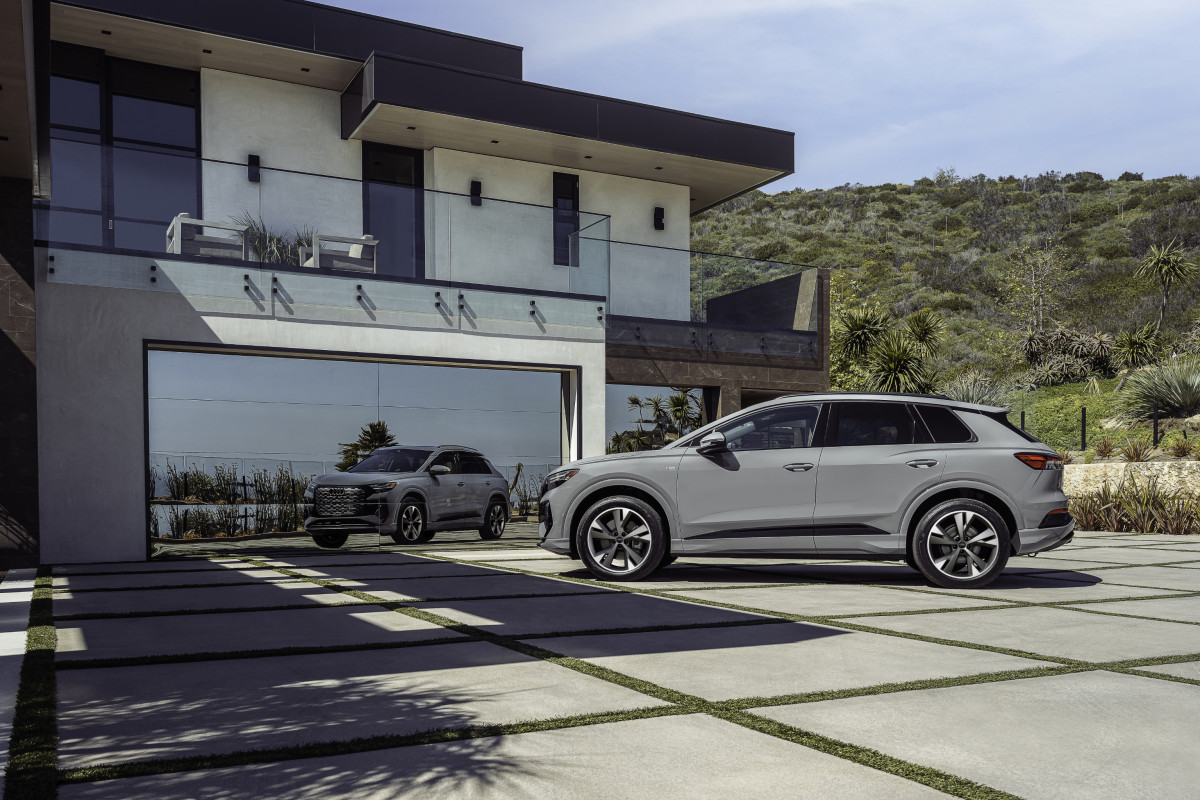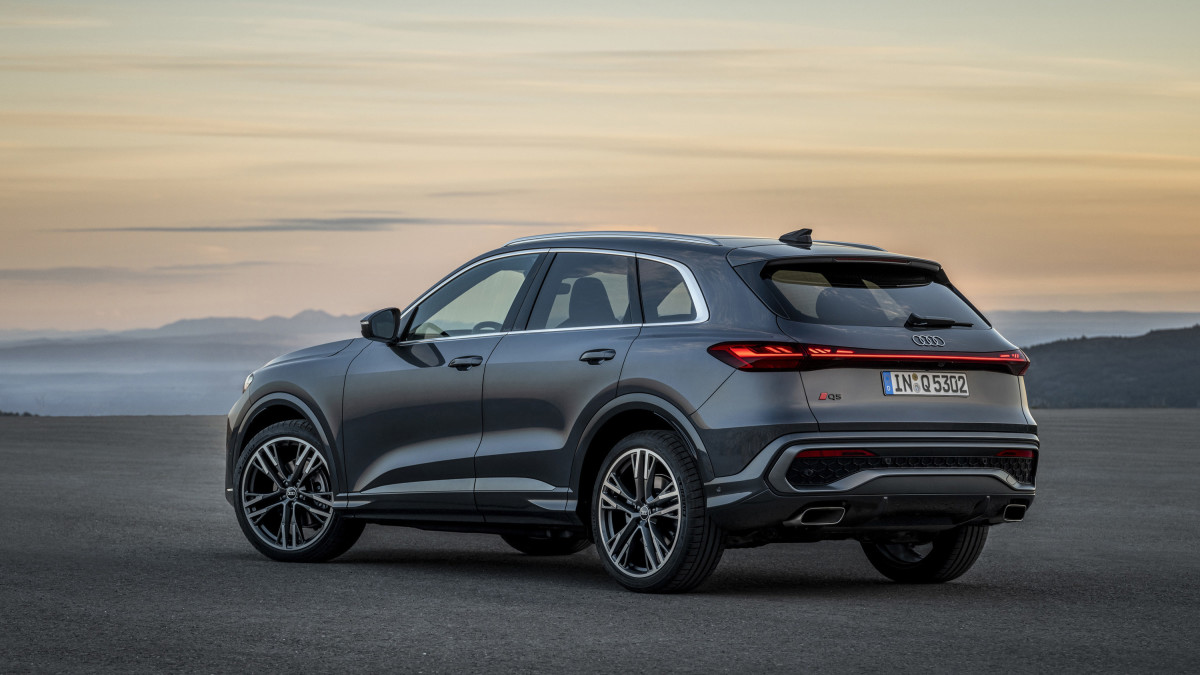In a move aimed at adapting to the rapidly changing tariff-centric trade environment, German luxury automaker Audi is said to be adjusting its production plans to reduce its exposure to the policies set forth by the Trump Administration. According to a new report by Automotive News and its German affiliate Automobilwoche, Audi could use VW Group manufacturing assets in the United States to build its vehicles.
Currently, most of Audi’s U.S. lineup is imported from Mexico and Europe—a problem that could spell trouble for the automaker, as 25% levies went live on May 3.
Sources told the outlet that Audi could build the compact Q4 E-tron EV crossover at VW’s plant in Chattanooga, Tennessee, while the bigger Q8 E-tron could see production moved from Mexico to the soon-to-be-completed Scout plant in Columbia, South Carolina. They also noted that Audi is looking for a potential U.S. site to build the Q6 E-tron.

In a statement to the outlet, Audi did not confirm any plans to move production stateside. However, it reiterated that the U.S. is its “third global pillar” in its global growth strategy, alongside Europe and China.
“We want to increase our presence in the U.S.,” the spokesperson said. “We are currently examining various scenarios. We are confident that we will be able to decide on the specific details in consultation with the Group before the end of this year.”
The news comes as Audi posted a 12% year-over-year jump in quarterly revenue during Q1 2025, which it credits to increased sales of its EVs. From January to March, the brand took in 15.43 billion Euros (~$17.49 billion), an improvement from the 13.73 billion Euros (~$15.56 billion) a year ago. During the same announcement, Audi CFO Jürgen Rittersberger said the automaker is set to introduce 10 models for the U.S. market and that production facilities for these models would be decided later this year.

Audi faces a challenging tariff scenario.
Of the trio of German luxury leaders, including Mercedes-Benz and the Bavarian Motor Works, Audi stands alone as an “odd one out” because it currently does not have any manufacturing facilities in the U.S. While the X3 is built at BMW’s sprawling manufacturing facility in Spartanburg, South Carolina, the Audi-badged rival is built south of the border.
Audi’s best-selling car, the Q5, is built at the brand’s lone North American factory, in San Jose Chiapa, Mexico. Since it opened in 2016, the Mexican factory has produced over a million Q5s. In 2024, 56,799 Q5s were sold in the United States, accounting for more than a quarter of Audi’s sales in the region.
Related: Why Audi’s Bestseller Might Vanish from US Dealerships
Final thoughts
This news underscores the logistical supply chain challenges that many automakers face, including ways to absorb the 25% tariffs on imported vehicles and car parts, which have come into effect fairly recently.
Bloomberg reports that on May 2, the Trump administration announced that components that qualify for preferential treatment under the USMCA would be exempt from the 25% tariff. White House officials confirmed that Trump’s move was made to help automakers relocate their parts supply chain to the United States.
However, for Audi, it wouldn’t be easy, as the Q5s it makes in Mexico are not USMCA-compliant. According to data from American Automobile Labeling Act (AALA) documents provided by the National Highway Traffic Safety Administration (NHTSA), just 2% of its parts are made in the U.S. or Canada—making them Q5 a giant red flag for tariffs.
Related: Auto Insurance Industry Faces Up to the Self-Driving Car Revolution